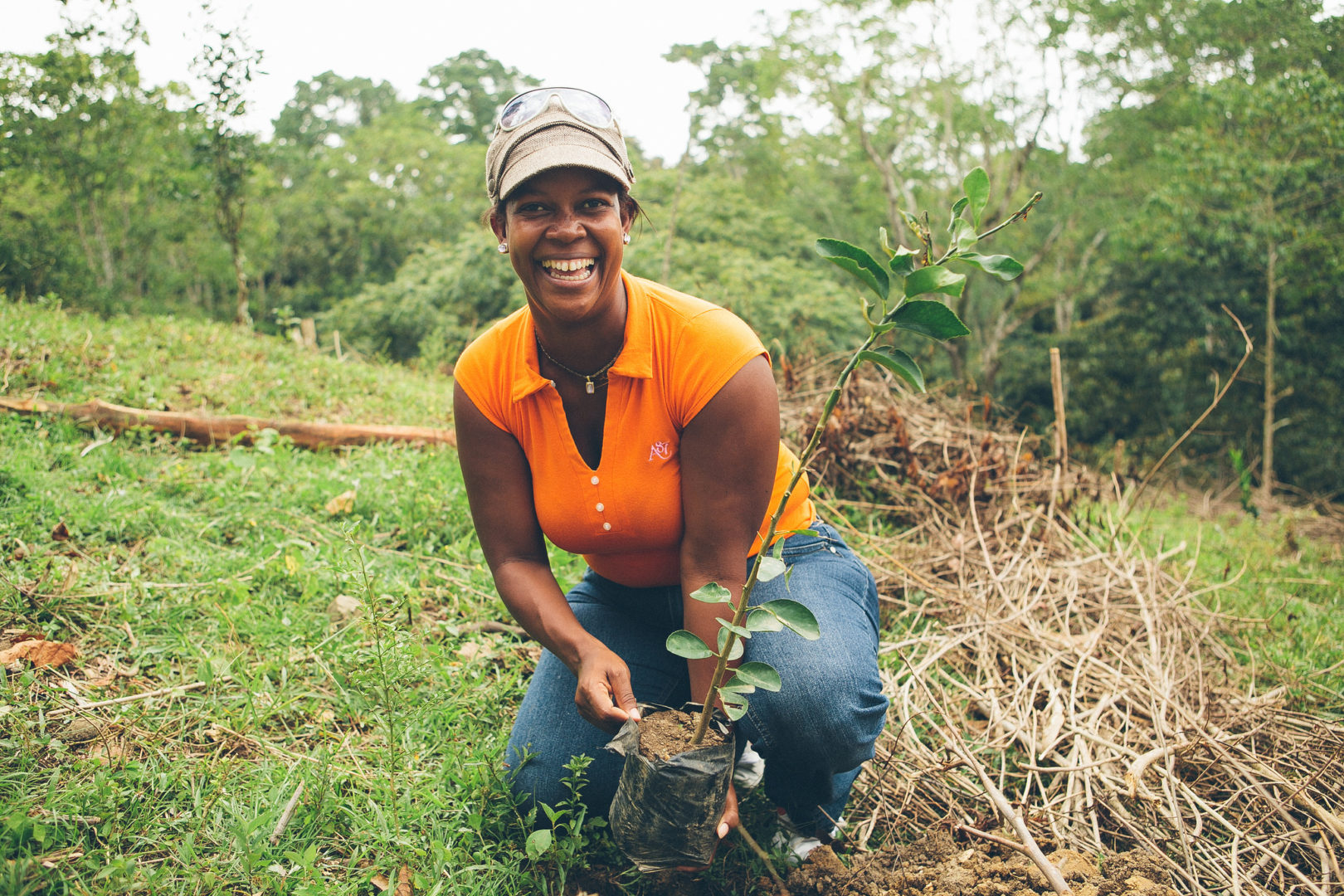Integrating sustainability and development provides many benefits to female farmers
Plant With Purpose is deeply committed to addressing the root causes behind poverty and environmental degradation. An amazing thing about addressing root causes is discovering how they affect so many issues.
Take, for example, women’s empowerment. Gender based inequality may be the world’s oldest human rights issue, and it’s no secret that we still have a long way to go.
Nicholas Kristof writes that “in this century the paramount moral challenge will be the struggle for gender equality around the world.”
One result of targeting economic and environmental interventions has been the advancement of women in rural villages.
The majority of Plant With Purpose participants are female, as they are the most likely to initially join farmer field schools and savings groups. As a result, these women have transformed their communities.

Participants in Rutana meet the governor.
The role women play in societies around the world makes their concerns crucial to fighting poverty and deforestation
In places like Tanzania, Burundi, or the Congo, women do a large share of agricultural work. Various estimates suggest that women produce about 60-80% of the food grown the developing world. However, women own less than 20% of farms. Of all the credit given to farmers, women receive less than 10%.
The reasons behind this unequal division of labor are complicated. Factors include the type of primary crop, as well as inheritance and land ownership laws. Disruptions to family life, like the death of a spouse or the rise of armed conflict, also affect labor division. Gender roles are changing, which further complicates these dynamics. In spite of all this complexity, the consequences are straightforward: women face an especially difficult task when running a family farm.
Because they do so much of the work around the world pertaining to poverty and deforestation, the issues of sustainability and women’s empowerment are deeply linked.

Living sustainability is God's way, but it takes grace.
Sustainable development creates opportunity
When women are better able to develop their family farms, to produce more crops, and to bring in more food and income, their entire family benefits. When women across an area start making progress together, the entire village benefits.
Plant With Purpose seeks this outcome through a combination of approaches. Farmer field schools allow women to reap the benefit of their hard work. Sustainable agriculture leads to better production.
Savings groups provide access to credit and entrepreneurship opportunities that women typically have a harder time finding. Local church leaders also work with men and women. As a result, both discover a spiritual perspective that upholds the value of women. One participating husband in the Democratic Republic of Congo remarked that, before partnering with Plant With Purpose, the work was unevenly shared. “We realized that if we worked together, we could accomplish something great!” he noted.
One of the most noticeable benefits of addressing gender inequality has been the rise in opportunities for women.
Each year, hundreds of women participating in Plant With Purpose programs are able to start new businesses or strengthen existing ones.
Women, who are usually in charge of collecting a family’s clean water, receive more free time. Daughters are more likely to go to school, improving future outlooks.
Want to help increase opportunities for women? Consider becoming a Purpose Partner! And if you’d like to wear your support for female farmers around the world, check out our pins in the Plant With Purpose online store.
















